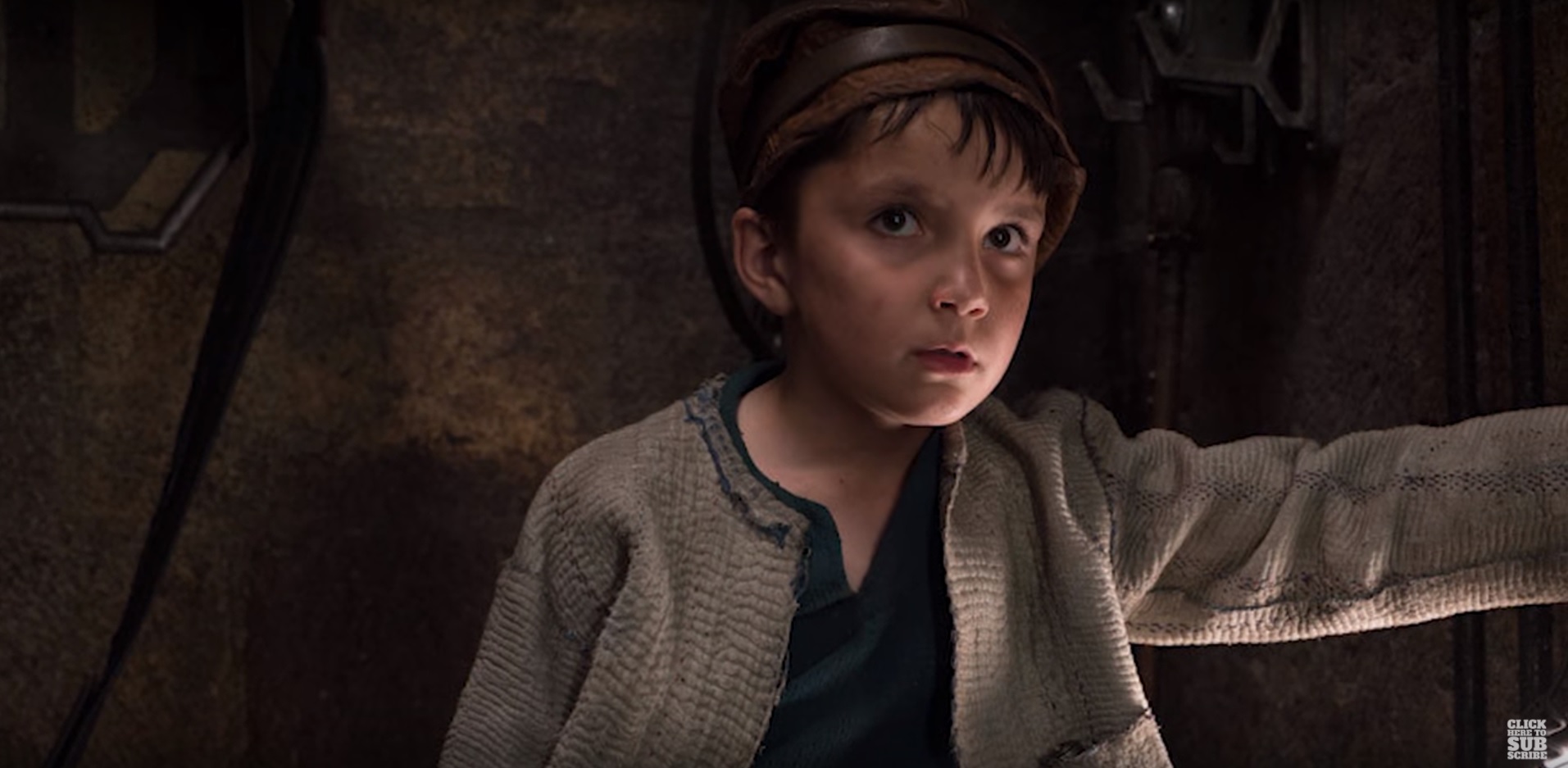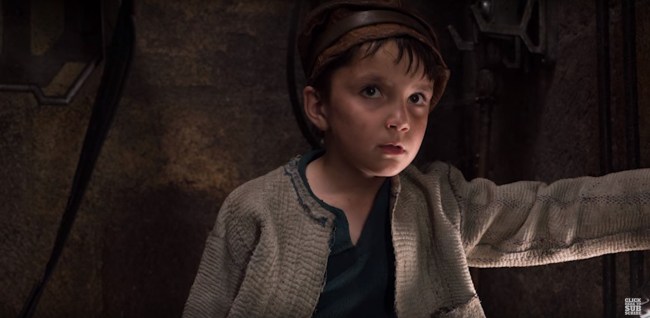What Would the Democratization of the Force Look Like in the Star Wars Universe?


One of my favorite things about Star Wars: The Last Jedi happened at the very end of the film, and it will have lasting repercussions on the future of the franchise. But as the story evolves for a new generation of fans, how will it reflect the world in which they live? **SPOILERS, y’all**
Temiri Blagg was one of three slave children in The Last Jedi, who cared for the fathiers in Canto Bight, the coastal casino town on Cantonica. After helping Rose and Finn escape from the city, Rose gives him her Resistance ring. He makes a reappearance in the final scene of the film. After he and his friends have been “playing Resistance” with dolls, Temiri goes out to get back to work, and we see him draw a broom to himself using the Force, establishing him as a Force-sensitive….regular person.
One of my favorite things about The Last Jedi is how it has beautifully set up the democratization of the Force by placing an emphasis on characters without any special lineage or status.
From Rey (unless Kylo Ren was lying or wrong), whose parents were drunks who sold her into slavery, to Rose, a maintenance worker who joins the Resistance after her sister Paige (also in the Resistance) dies, to Finn, who was drafted into being a First Order stormtrooper as a child taken from average parents, the franchise has gradually shifted the focus away from the Skywalker family (and it’s ties to the upper echelons of the Jedi and Sith academy) and onto the rest of the Star Wars universe. The average folks who make up the worlds the Skywalkers inhabit.
Even more important is the fact that these average people can be Force-sensitive. Right now, Rey is the most powerful example of that, but the movie ending with Temiri Blagg using the Force means that the power is something anyone, perhaps even everyone, can have access to.
Which makes me wonder how Rey will choose to use the Jedi books she took from the Jedi temple after leaving Luke.
When talking with friends about it, the idea came up that, rather than being elitist about the information, she could broadcast the contents of the books on the HoloNet, to allow everyone to learn what they want about the Jedi connection to the Force. What better way to empower a resistance than to democratize one of its most powerful tools? Information is power, right?
That got me thinking, though, about what has happened in the real world once information became democratized with the advent of what is arguably the biggest technological advancement of the 20th Century: the Internet. Sure, you have the ability to facilitate revolutions and protest, greater access to knowledge no matter what your income, and the ability for citizens to become more involved in their governments.
However, there’s also the flip side (the “Dark side?”) of democratization: the misuse of the information. If anyone can start a blog and call themselves a journalist, who do you trust for truth? If anyone can appropriate knowledge and sell it as their own, how do you prevent corruption? If Rey makes Jedi knowledge accessible beyond the Jedi elite, there will be little oversight over how the knowledge is used.
And then there’s the fact that there are people out there who are Force sensitive who might not even want to have anything to do with the Resistance. One of the things I’ve always wanted to see more of in the Star Wars universe is more average uses of the Force (like using it to draw a broom to yourself). Obviously, Temiri is being set up to be sympathetic to the Resistance, and probably a future Resistance fighter, but in Rian Johnson’s future trilogy, it would be interesting to see how average Force-sensitive folks navigate their own connections to that power, without a military connection.
There are many ways to fight the Empire. It would be fascinating to see different approaches to protesting and resisting the First Order without actually being members of the Resistance. Or what about those who connect with the Dark Side of the Force? Perhaps they’d use the Force to be opportunistic in a time of chaos and political upheaval…without being formally aligned with the Sith, or the First Order, or anything else.
Basically, I’m looking forward to a Star Wars that examines the Force through the prism of our real world. What does a people’s revolution look like in the Star Wars universe? How do people fight an oppressive regime without A-wings and bombers? I have a feeling that this might be an element Johnson will include in the franchise, and it’s something I would love to see.
What say you, Mary Suevians?
(image: Lucasfilm/Disney)
Want more stories like this? Become a subscriber and support the site!
—The Mary Sue has a strict comment policy that forbids, but is not limited to, personal insults toward anyone, hate speech, and trolling.—
Have a tip we should know? [email protected]